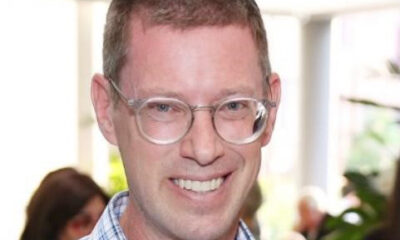
Religion

Counting the days, and making each day count
Published
11 months agoon
You know the drill: you bump into your friend at the mall, “How’s your day going?”
“Eh, not so good. Could be better.” (Tilt your head, and offer a pitying look: “Shame, sorry … Um. Did you see those lines in the hypermarket?”)
“It’s good, BH (Baruch Hashem). My husband is an angel!” (“Oh, lovely”, you respond. “Mine is still alive.”)
“It’s fine. Whatever. Blah. Can we talk about potholes, I want to feel miserable!” (Ya, and loadshedding is just OMG! I just can’t believe what’s happening! Now, let’s bring that misery into our homes because we all need more of it!)
“It’s great!” (Are you ok? What intoxicant are you consuming?)
And yet, have you ever challenged yourself with this simple question: “What’s a good day?”
A day that you worked hard, smart, or both?
A day that you spent with your family and it didn’t devolve into a world war?
A day that you exercised, meditated, prayed, studied, bonded, ate well, and made wise decisions?
All the above?
As always, in regard to questions of how to live better, we need to search for wisdom (knowledge and wisdom aren’t the same – a topic for another time). Where better to find that wisdom than in The Manual for Good Living authored by the creator of life itself – G-d.
One of the mitzvahs in the Torah is the commandment to count 49 days, starting from the second day of Pesach up to the day before Shavuot. We stand at the end of the Omer period.
Why do we count the days? To make sure that our days count. Each day has a different purpose and calling; and is therefore counted in its unique way. Simply: The 45th day is a different day to the 44th and the 46th.
I write this piece on Sunday, the 45th day of the Omer. Yesterday was Shabbos. Shabbos has a very different energy to Sunday. For Shabbos, I was off my phone, with my family and community, and grabbing a bit of (what I’d like to believe) was a well-earned schlof.
Today is Sunday. Back to the screen and work (writing this piece), but not the same intensity of work as tomorrow, Monday. (Although, as a rabbi, Sundays are often the most hectic day of the week, running between an unveiling, funeral [heaven forbid], wedding, and a Barmitzvah … and explaining to the mom of the bride why you’re leaving after seven hours of the wedding [on the way to the Barmi and the morning at the cemetery], and she gives you the faribeled look, “So soon?”)
Only now do I appreciate the wisdom of my father who used to say, “Thank G-d for all the invitations I don’t receive.”
Each day has a different calling. It’s our responsibility to listen and live by its expectations.
King Solomon writes it best in Ecclesiastes, Chapter 3:
“Everything has an appointed season, and there is a time for every matter under the heaven.
A time to give birth and a time to die; a time to plant and a time to uproot that which is planted.
A time to kill and a time to heal; a time to break and a time to build.
A time to weep and a time to laugh; a time of wailing and a time of dancing.
A time to cast stones and a time to gather stones; a time to embrace and a time to refrain from embracing.
A time to seek and a time to lose; a time to keep and a time to cast away.
A time to rend and a time to sew; a time to be silent and a time to speak.
A time to love and a time to hate; a time for war and a time for peace.”
The wisest of all men – King Solomon – teaches us that we need the seichel (wisdom) to know what each moment is calling to us.
In modern vernacular, we might put it this way:
There is a time to be with family and a time to be on the phone; a time for physicality and a time for spirituality.
A time for closeness and a time for distance; a time for work and a time for play.
A time to kvetch (not too often) and a time for hope; a time to question oneself and a time for certainty.
A time to emigrate and a time to stay put (I stay put); a time to be strong and a time to be weak.
A time to question and a time to just believe; a time to grow and a time to integrate.
A time to feel elevated and a time to feel uninspired (and still do what needs to be done).
A time to be inflexible and a time to be flexible.
Life is full of different emotions, experiences, and ideas, and there’s a time for everything. Wisdom is to intuit what the calling of the hour is – what G-d wants from me now.
Some people are great at picking up G-d’s messages about work, but their antenna is dead to picking up messages about family. We call that workaholism.
Some people are great at hearing the message about earning a living, but they are closing their hearts to the incessant messages about having a life.
Making each day count is about hearing the message from heaven that calls us each day to live the calling of the day. The Zohar teaches “כל יומא ויומא עביד עבידתיה” (every day has its unique purpose and way of serving G-d). Sunday isn’t Monday, which isn’t Tuesday, and so forth.
And one more thing, before we sign off to do the next things on today’s agenda (lunch):
I once heard from someone (I wish I could remember whom) that a good day is a day that you enriched the life of another. If someone’s day is brighter because of you today, then you lived a good day.
I humbly agree. There are some things that belong in our lives every day (food, sleep, wisdom, faith, love etc.). Upgrading the life of another person by acts and words of love and care is a daily mandate; no matter what season of life it is. I think King Solomon would agree.
Wishing you and yours a beautiful Chag Shavuot. May we receive the Torah with joy and internalise its messages. May we be in tune with the calling of each day, and play our part in actualising G-d’s plan for us and the universe.
- Rabbi Levi Avtzon is the rabbi of the Linksfield Shul. He dedicates this piece to his son, Aaron, in honour of his Barmitzvah on Shavuot.










